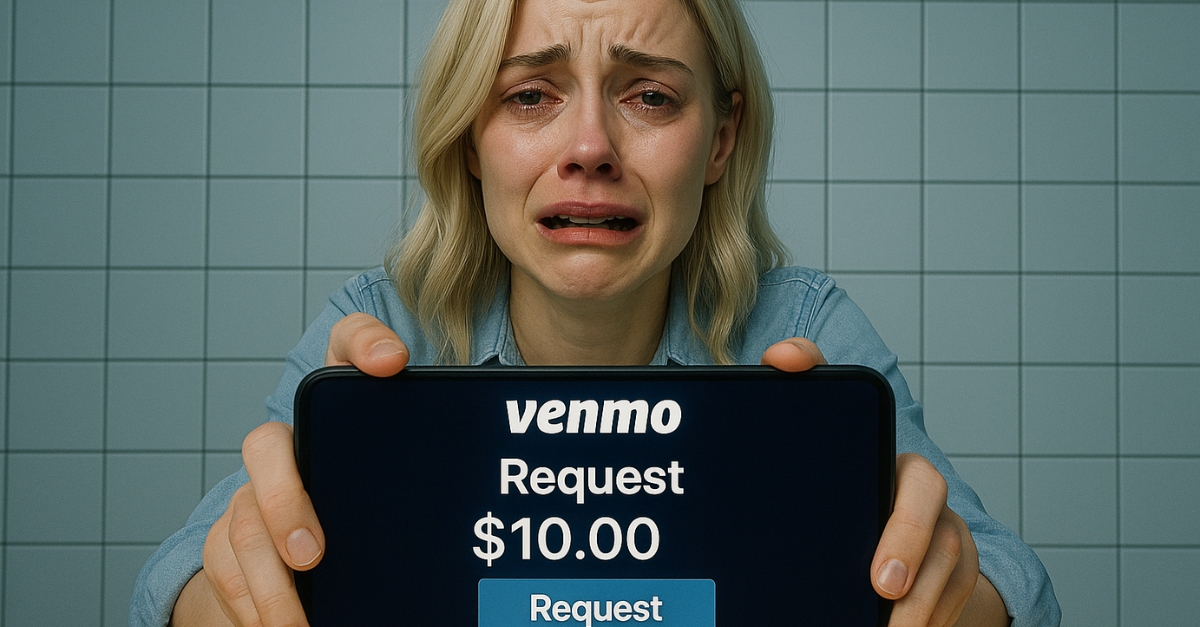
My buddy won’t stop Venmo-requesting me for “shared” expenses I never agreed to. How do I say no without losing the friendship?
My buddy won’t stop Venmo-requesting me for “shared” expenses I never agreed to. How do I say no without losing the friendship?
You’re scrolling through your phone after a long day, enjoying a rare quiet moment—until that familiar Venmo notification pops up. Your best friend’s name flashes on the screen, attached to a charge for gas money or “drinks last weekend.” The catch? You never agreed to split those costs in the first place.
The amount isn’t huge, but the principle stings. Should you just pay to keep the peace, or draw a line before resentment takes root? If that scenario sounds uncomfortably familiar, it’s time to talk about one of the hardest money conversations out there—setting boundaries with a friend you truly care about.
Recognize What’s Really Happening
Money intertwined with friendship often leads to tension because expectations get fuzzy. When your friend assumes you’ll share costs you never agreed to, you’re not just dealing with a few dollars—you’re facing unclear assumptions about fairness and respect. The discomfort doesn’t come from the money itself but from how it’s requested. Once financial lines blur, frustration can build faster than either of you expects.
 Anna Shvets, Pexels
Anna Shvets, Pexels
Set Your Boundary With Clarity And Kindness
Healthy money boundaries are about creating transparency. So, start by defining what you’re comfortable covering before the next outing.
Try these practical moves:
Keep your responses short, kind, and direct: “I didn’t plan for that expense, so I’ll sit this one out.”
Use separate payment methods for shared purchases to keep records clear.
Offer budget-friendly alternatives when possible—like cooking at home or skipping pricey events.
Having a plan helps you respond calmly rather than emotionally.
 Polina Zimmerman, Pexels
Polina Zimmerman, Pexels
Communicate Your Position Without Friction
Confrontation isn’t required, but clarity is. Framing the discussion around your budget—not their behavior—keeps things civil. For example: “I’m saving for a few big expenses, so I’m sticking to smaller shared costs.” A message like that avoids blame but still draws a clear line. Most people respect honesty when it’s paired with warmth and consistency.
 Alexander Suhorucov, Pexels
Alexander Suhorucov, Pexels
Why Money Boundaries Are Important For Both Of You
It protects your savings and emotional peace.
It prevents resentment from creeping into the friendship.
It models financial respect that benefits both sides.
Money boundaries are about care. You’re signaling that the friendship matters enough to keep it healthy. So, at the end of the day, remember, saying “no” to a Venmo request doesn’t mean saying “no” to the person. It means valuing both your friendship and your financial well-being enough to keep them in balance.
READ MORE

As the crisis continues, airlines are hemhorraging money. Will airlines survive this crisis? And if so, how?

There is a reason why shows like Gray's Anatomy and ER are so addictive: Hospital drama is insane, and not just on TV—that stuff happens in real life, too.

Courtroom cases can take months or even years to go in front of a judge. Then, in the blink of an eye, it can all unravel spectacularly.

There's one unfortunate side of working in customer service that's just unavoidable: customers. If you've ever worked with customers, you'll relate.

While it can seem like teachers don't know much more than their students, these traumatized pupils think the story's a little more complicated.

From one-in-a-million cases to deranged patients and everything in between, these doctors have shared the medical moments they will never—ever—forget.
Disclaimer
The information on MoneyMade.com is intended to support financial literacy and should not be considered tax or legal advice. It is not meant to serve as a forecast, research report, or investment recommendation, nor should it be taken as an offer or solicitation to buy or sell any securities or adopt any particular investment strategy. All financial, tax, and legal decisions should be made with the help of a qualified professional. We do not guarantee the accuracy, timeliness, or outcomes associated with the use of this content.
Dear reader,
It’s true what they say: money makes the world go round. In order to succeed in this life, you need to have a good grasp of key financial concepts. That’s where Moneymade comes in. Our mission is to provide you with the best financial advice and information to help you navigate this ever-changing world. Sometimes, generating wealth just requires common sense. Don’t max out your credit card if you can’t afford the interest payments. Don’t overspend on Christmas shopping. When ordering gifts on Amazon, make sure you factor in taxes and shipping costs. If you need a new car, consider a model that’s easy to repair instead of an expensive BMW or Mercedes. Sometimes you dream vacation to Hawaii or the Bahamas just isn’t in the budget, but there may be more affordable all-inclusive hotels if you know where to look.
Looking for a new home? Make sure you get a mortgage rate that works for you. That means understanding the difference between fixed and variable interest rates. Whether you’re looking to learn how to make money, save money, or invest your money, our well-researched and insightful content will set you on the path to financial success. Passionate about mortgage rates, real estate, investing, saving, or anything money-related? Looking to learn how to generate wealth? Improve your life today with Moneymade. If you have any feedback for the MoneyMade team, please reach out to [email protected]. Thanks for your help!
Warmest regards,
The Moneymade team










